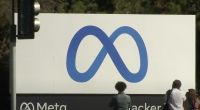A class-action lawsuit filed in 2020 against Google regarding its data collection practices in Chrome’s Incognito mode has now concluded with a settlement. As part of the settlement, the company will destroy “billions of data points” collected from users while they were in Incognito mode.
“This settlement is an historic step in requiring dominant technology companies to be honest in their representations to users about how the companies collect and employ user data, and to delete and remediate data collected,” reads the settlement filing. The class action lawsuit covers millions of Google users who used private browsing since June 1, 2016.
Under the terms of the settlement, Google has agreed to implement several key measures aimed at addressing the concerns raised by users and enhancing transparency surrounding data collection practices. Google will also destroy “billions of data points” collected improperly during Incognito browsing sessions. This action is intended to assuage fears of privacy violations and restore confidence in Google’s commitment to user privacy.
Additionally, Google will update its data collection disclosures to provide users with clearer information about what data is collected while using Incognito mode, as well as offer greater transparency into its data collection practices. Last but not least, the company will implement a default setting that blocks third-party cookies for five years within Incognito mode, thus restricting the ability of websites and advertisers to track users across the web, even during private browsing sessions. These terms, however, do not translate to direct financial compensation for most users impacted by the data collection practices, though.
“We never associate data with users when they use Incognito mode,” Jose Castaneda, spokesperson for Google, commented on the matter. “We are happy to delete old technical data that was never associated with an individual and was never used for any form of personalization.”
To provide a timeline of the development, a class-action lawsuit was filed against Google four years ago alleging that the company misled users about the level of privacy offered by Incognito mode. Plaintiffs argued that Google continued to monitor and collect user browsing data even when users were actively using Incognito mode, which is designed for private browsing (thereby misleading users about how private Incognito browsing truly is). The lawsuit garnered significant media attention, sparking a public conversation about user privacy and the limitations of incognito browsing. Initially, the lawsuit initially asked for $5,000 in damages per user for alleged offenses related to federal wiretapping and privacy laws in California.
For its part, the Mountain View-headquartered Google initially defended its practices, arguing that it did not associate data with users while they were in Incognito mode. The company further maintained that it clearly informed users that Incognito mode did not guarantee complete anonymity. However, in a key development in 2021, Judge Lucy Koh ruled against Google’s motion to dismiss the lawsuit.
The judge determined that Google did not adequately notify users that data was still being collected while Incognito mode was active. This ruling paved the way for the lawsuit to proceed. And later, in 2022, internal Google emails revealed that the company’s employees had concerns about the privacy limitations of Incognito mode. One email, discovered in late 2022, highlighted concerns from Google’s Chief Marketing Officer, Lorraine Twohill, who suggested that “private” was an inaccurate term for Incognito mode. At that time, Twohill expressed concerns that the term risked “exacerbating known misconceptions” about Incognito mode’s true capabilities. Later, in December 2023, a preliminary settlement was reached between Google and the plaintiffs. The terms of the settlement were not initially disclosed, but it averted a scheduled trial that was set for February 2024.
The Tech Portal is published by Blue Box Media Private Limited. Our investors have no influence over our reporting. Read our full Ownership and Funding Disclosure →






